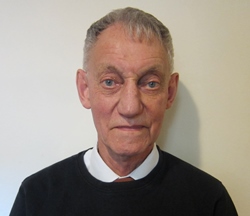 Edward James believes the Society should further widen its remit and join with others to entertain novel perceptions.
Edward James believes the Society should further widen its remit and join with others to entertain novel perceptions.
There is strong support to rename the current epoch in which we live as the ‘Anthropocene’. But the new age needs far more than us. Our home is the whole Earth, and humans only a small, renegade, part of it. We depend completely on it, and carry responsibility to care for it.
However, the name ‘Anthropocene’ implies that we cannot separate the study and practice of traditional geology from other human activity. This implies a concern with the moral issues that confront us every day. Before long, the idea of doing any ‘science’ while ignoring moral aspects will be seen as outdated and incomplete at best, and certainly sadly destructive to quality of life.
Revolution
I believe that the Society should continue our Secretary's 'Quiet Revolution' (Annual Review 2014). Every member needs to be involved in widening the Society’s remit. This is already happening, and is evident in the paper Geology for Society, where 'reaching out' is stressed.
But 'reaching out' means conversing with those 'outside'; which, if serious, implies that we need to scrutinise our personal objectives continually. And ‘Moral Geology’ involves making moral decisions on what we each do geologically.
I was for some years responsible for a website that displayed all activities connected with Carbon Capture and Storage (CCS) worldwide. This task was later taken over by the Australian government, which wants CCS to work (mainly for political reasons). But my own technical experience of CCS projects suggests to me that they will not succeed. My only solution to this is that we should not take any more oil out of the ground. Widening remit means entertaining new perceptions. For example, I feel (as a mathematician) that rational logic cannot provide answers to moral problems. We can only do our best, in the time available, with limited data.
Fourteen years ago, our former Executive Secretary made a far-sighted arrangement to accept Society membership applications from a group concerned with the Earth as a single complex system. And so the Earth Systems Science Group of the Society came into existence. Its members are dedicated to the Earth and its future development, but not necessarily working within traditional Earth Sciences.
Onlookers
Since then the group has held conventional meetings, but has also pioneered small meetings in which people in widely different spheres of expertise can meet together and consider the wider implications of Earth System Science. We have no vaguely interested onlookers at these: each invitee is a specialist in their own right - even practising geologists! But they have to be open to new ideas outside their specialism, and able to work to build a new synthesis. Clearly those with compartmented views on what ‘Geology’ should be would find this difficult. But we must face such difficulties.
I would suggest that similar wide-ranging meetings could be promoted in all other areas of the Society. We must interest and involve prominent thinkers from 'outside' classic Geology to help us.
* Edward James is an independent scientist with a background in mathematics and computing. For further information, or to contact him about this article, please visit www.edward-james.net/. See also Books & Arts, review of ‘Geoethics’